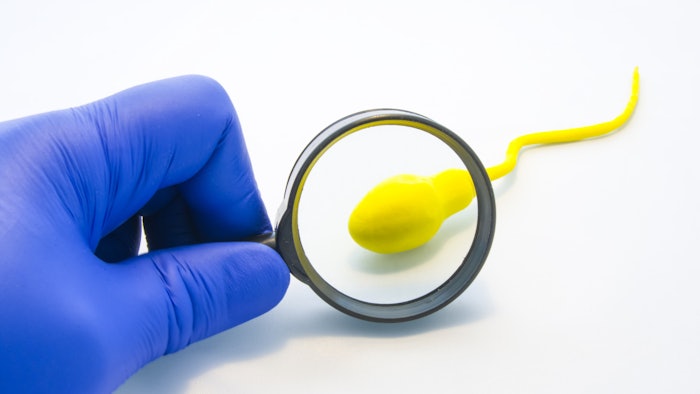The benefits of the COVID-19 vaccine and male fertility
The virus that causes COVID-19 can affect sperm quality for up to six months.

Just when it seems COVID-19 is slowly fading into history, it’s rearing its ugly head in the study of infertility. The significance of a COVID-19 infection on male infertility is the focus of this morning’s session, “Panel Discussion: Impact of COVID on Infertility and How to Counsel Patients.”
Kathleen Hwang, MD, professor of urology and director of male reproductive health at the University of Pittsburgh School of Medicine in Pennsylvania, will lead the discussion. She has an active laboratory involved in researching the biology and mechanisms of toxic disruption of testicular function, the genetic basis of infertility and the mechanisms of wound injury. According to Dr. Hwang, the association between COVID-19 and male infertility is strong.
 Kathleen Hwang, MD
Kathleen Hwang, MD
Considering these data, Dr. Hwang said urologists should counsel patients about the benefits of COVID-19 vaccination and the impact of the infection on male fertility.
“Patients should be made aware that vaccination has no detrimental effects on fertility potential, while infection by the virus is known to have negative effects on both hormones and sperm production,” she said. “The virus has been found in both semen and the testis tissue, and its impact on testicular function and spermatogenesis is well described.”
Dr. Hwang said urologists should remind patients that COVID-19 is not transmitted sexually but standard precautions should be followed during infection. However, COVID-19 has been shown to induce orchitis and alter hormone levels, in addition to affecting overall sperm health, she added.
Most literature on the subject suggests that much of the sperm impairment is recovered after three to six months, Dr. Hwang said. Each cycle of sperm production takes approximately 2 1/2 months. As such, the evidence suggests that a COVID-19 infection reduces sperm quality for about one to two cycles before returning to a healthy level.
The challenge, however, is that most couples who are trying to conceive try for an entire year before undergoing fertility testing. Therefore, they may be trying and not know that a COVID-19 infection has decreased sperm quality.
“If you were unaware and were continuing with timed intercourse, you may not even know that the sperm numbers/quality were reduced due to the infection,” Dr. Hwang said. “The only benefit of testing during this time frame would be the ability to acknowledge the reduction and consider pausing the timed intercourse for three months.”
As for the long-term impact of the infection on future male offspring, Dr. Hwang said there is no literature to suggest that a COVID-19 infection results in changes in pregnancy or assisted reproductive technique outcomes in the male partner.